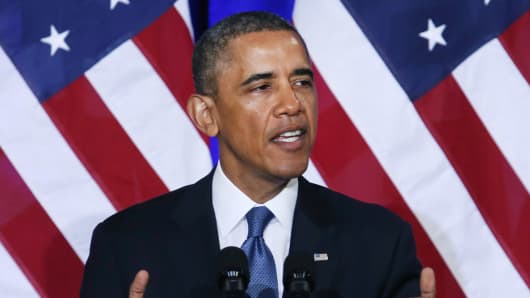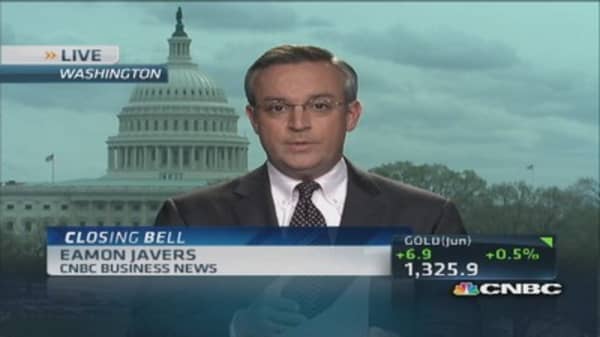Oops! The deficit peaked in 2009 and has been on a rapid downward trajectory ever since.
Rather than being stuck at 8 percent of GDP, the Congressional Budget Office is now projecting the deficit to fall to 2.8 percent of GDP this year, or $492 billion. That's down 32 percent from last year and next year, the shortfall is projected to shrink further, to $469 billion. The CBO is, however, forecasting a return to trillion-dollar annual deficits by 2022.
Read MoreObama's tax return: Did he overpay?
So why isn't the falling deficit getting the cheers it is due? Barack Obama, Harry Reid, John Boehner and Paul Ryan should be fighting to take credit for tackling what was an intractable economic, and political problem. Yet, no one — NO ONE — is taking credit! Instead, it is barely getting a grudging acknowledgement that, once again, the most dire predictions of the doomsayers have not come to pass.
There has been no explosion in interest rates, no crash in the value of the dollar, no wholesale dumping of U.S. Treasury bonds by nervous Chinese, Japanese, Middle Eastern, British, or Dutch investors. Quite the contrary! By and large, they all remain willing holders of U.S. debt, thanks to the belief that, unlike Greece, Portugal, Spain, Italy, and maybe even China one day, they WILL get their money back.
On the domestic front, certainly, the big decline in the deficit, at least partially, invalidates the drive-by deficit hawks to further reduce the size of government and wipe away demonized democratic programs. So, the right wing would be hard-pressed to push its austerity agenda, if it acknowledges this obvious success.
In addition — and here may be the real rub for Republicans — cost-savings resulting from The Affordable Care Act, aka, Obamacare, are, in part, responsible for a drop in the nation's red ink, according to the CBO's latest estimate. Say it isn't so, Joe!
Ironically, the White House and Congressional Democrats are also not making hay while the sun shines. The left, if it acknowledges that compromise with Republicans actually produces results, would face a backlash within its own ranks. That, in large part, is because its own pet projects were cut and the world did not come to an end. Smaller government is indeed warranted and needed, but Democrats refuse to accept sensible reforms to entitlements and the tax code. A move on those two fronts would be a logical and, indeed, necessary next step toward fiscal balance, but the Democrats refuse to budge.
In truth, both sides would feel the heat from the extreme wings of their parties if they acknowledged that government, and compromise, is actually working!





